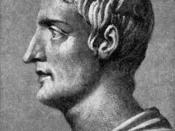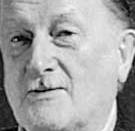Every piece of historical writing has, in the process of creation, come under the influence of the historians perspective and purpose. The extent to which these two influences effect the writing of history depends on the individual historian.
"All history is the history of thought"ÃÂ, as Collingwood states. Therefor, no two accounts of the same event, issue, or person can be entirely the same.
The purpose of the historian is an element of historical writing that may alter dramatically the way they write. As Bullock states, the historian does not live in isolation, therefor " he is sensitive to the interests and problems that effect the society in which he lives."ÃÂ These interests and problems can manipulate the purpose a historian has in writing his history and can therefor dramatically effect the manner in which they write.
The importance of the relationship between the topic being written about and the personal influences of the historian can perhaps best be summarised by Collingwood.
He states that, " History is concerned neither with the past by itself nor with the historian's thoughts about it by itself, but with the two things in mutual relations."ÃÂ From this comment made by Collingwood we can see that history, in its entirety, must contain both the information of the topic being written about and the interpretation of the individual historian. It is the requirement of the interpretation of the historian that reinforces Collingwood's earlier statement, that" all history is the history of thought."ÃÂ A striking example of the way in which the purpose of the historian can manipulate what is written and the manner in which the historian writes, is that of Cornelius Tacitus. Tacitus was bred from a family who was destroyed by the emperor Domitian. It was this experience that fuelled Tacitus' desire...


